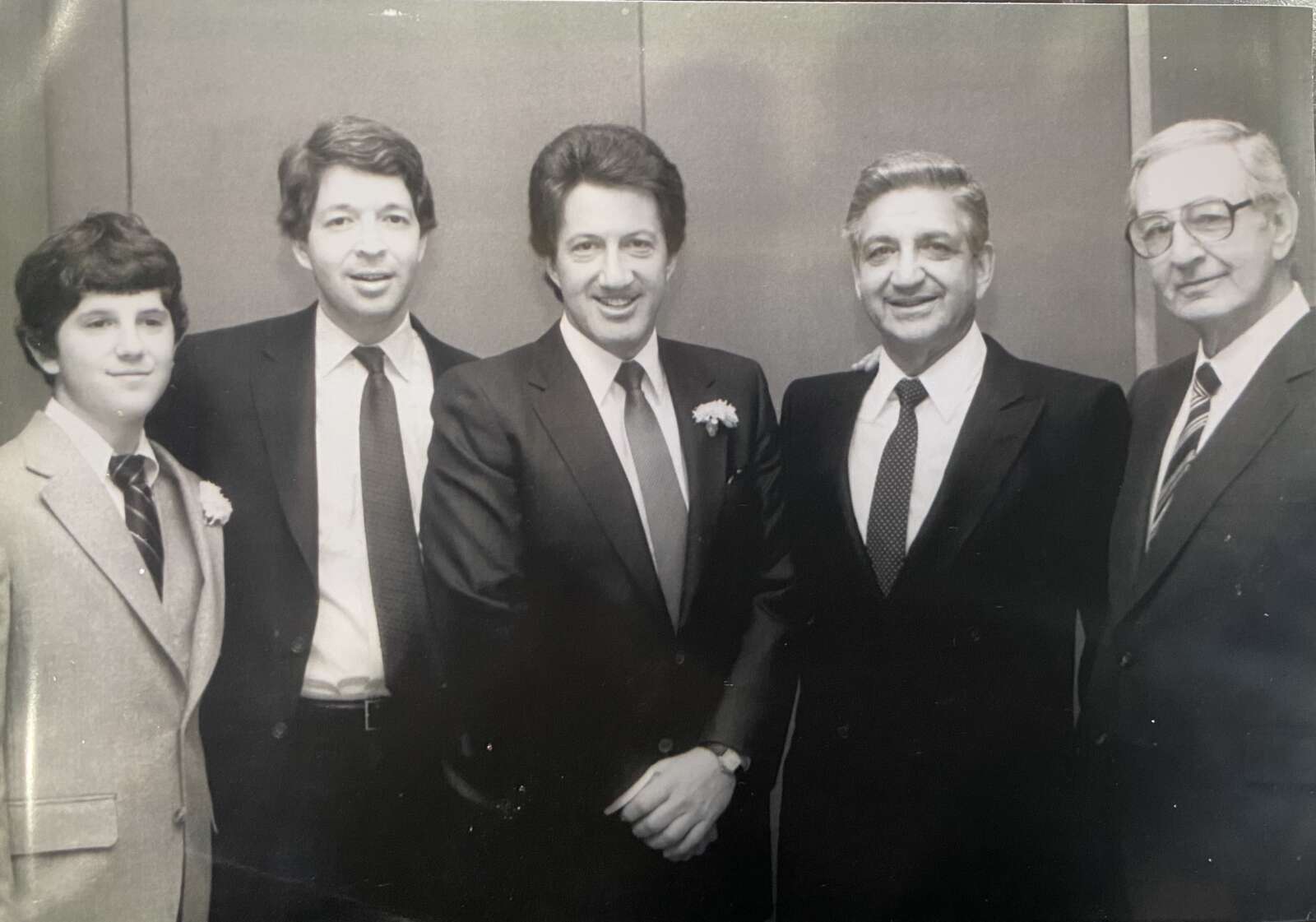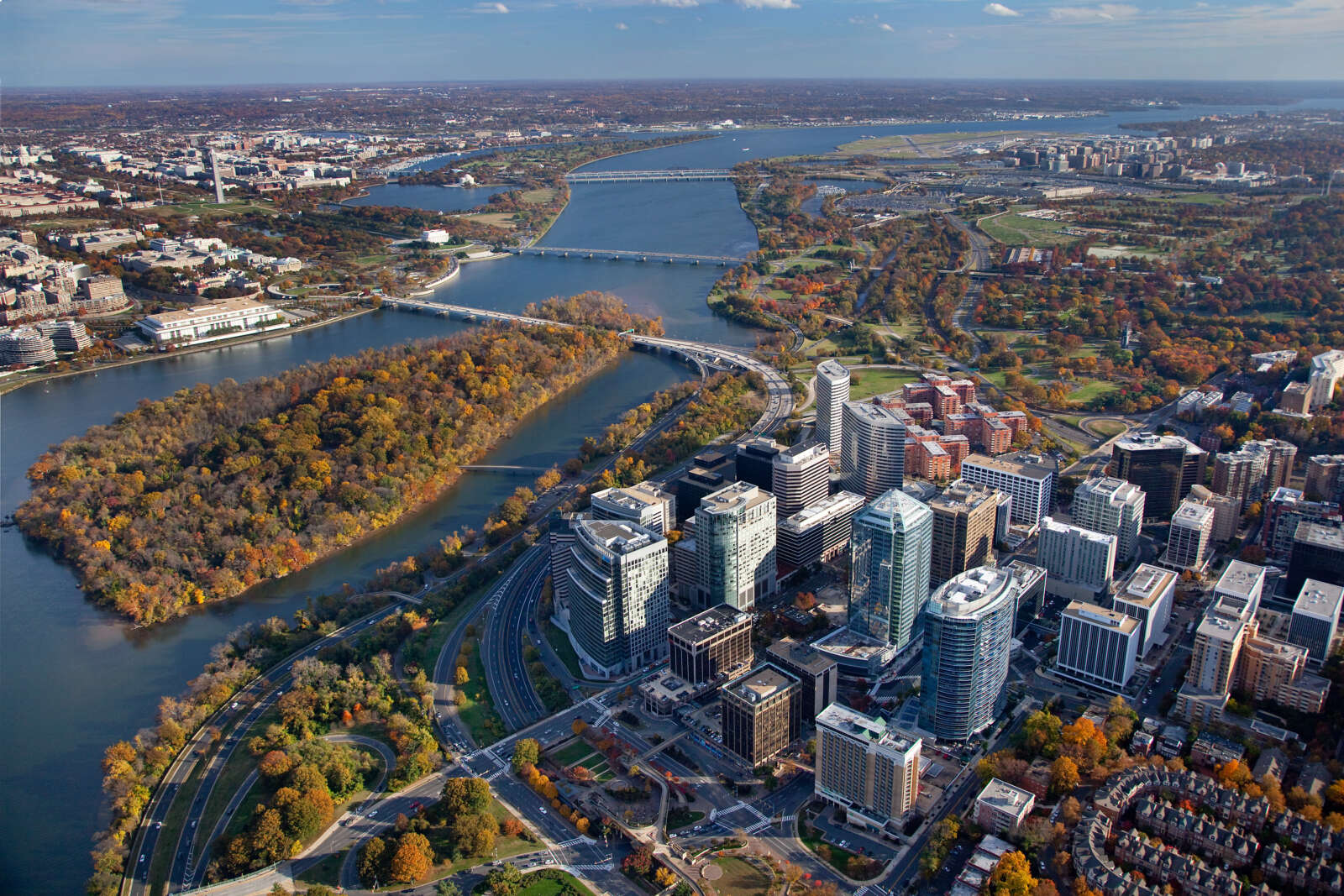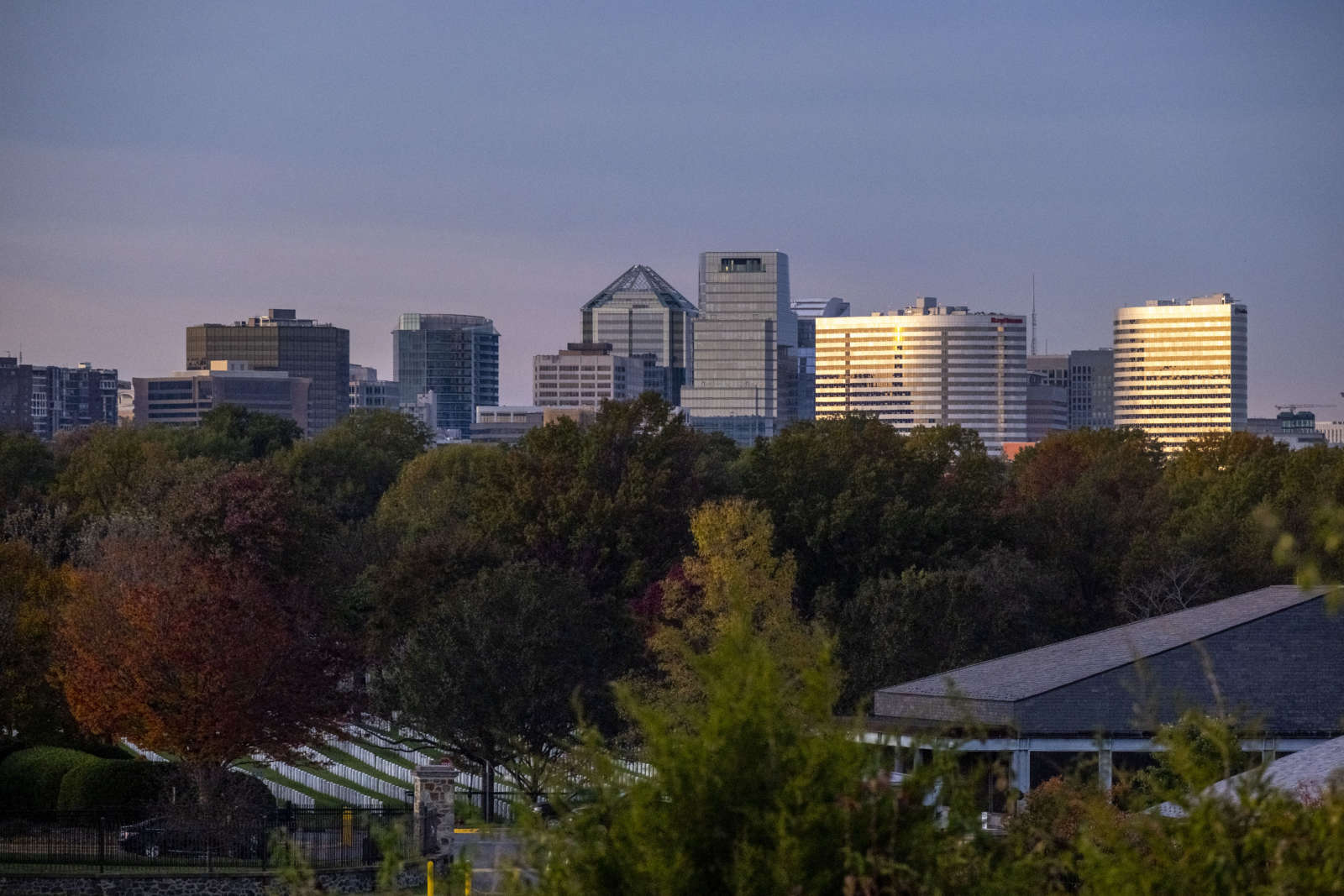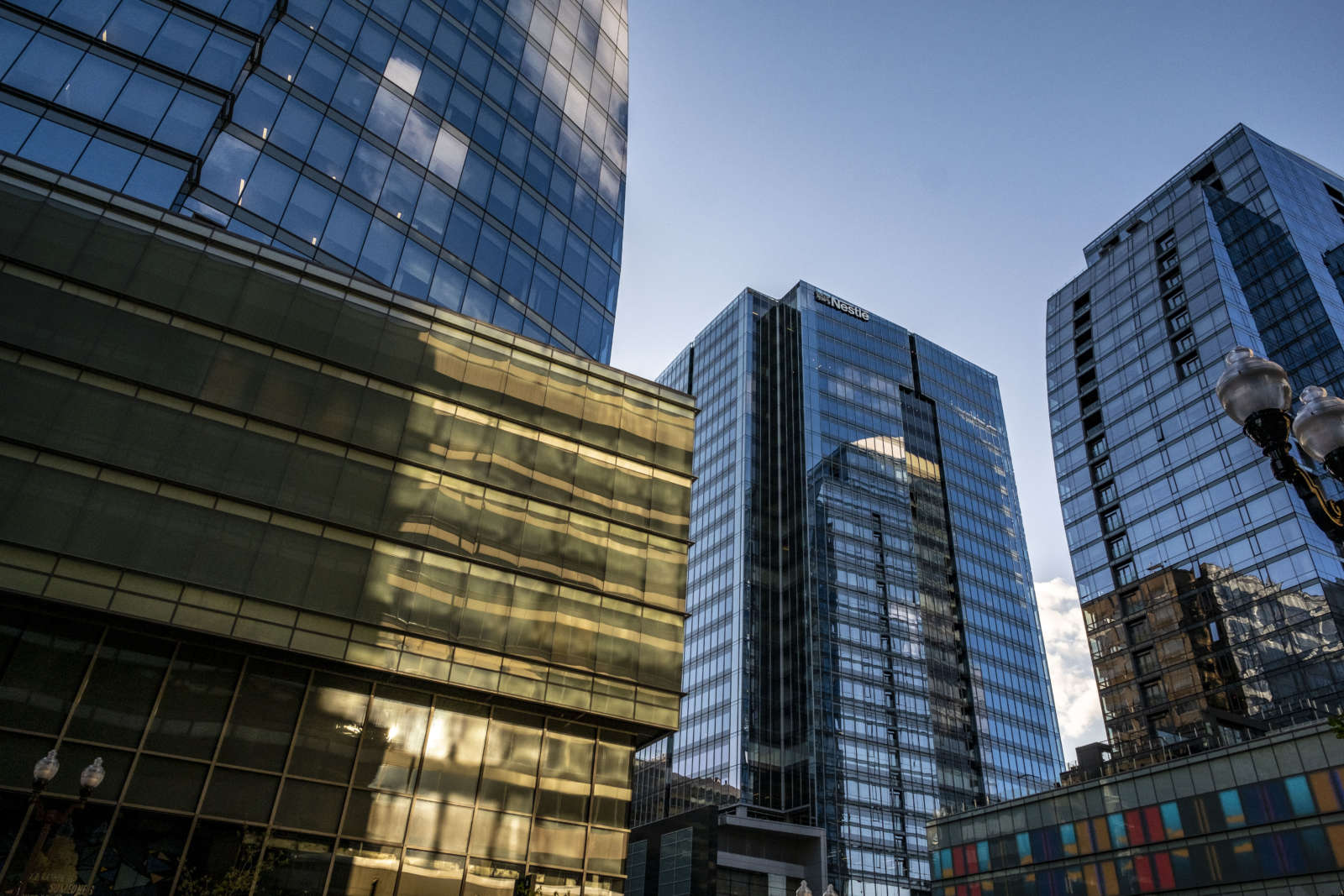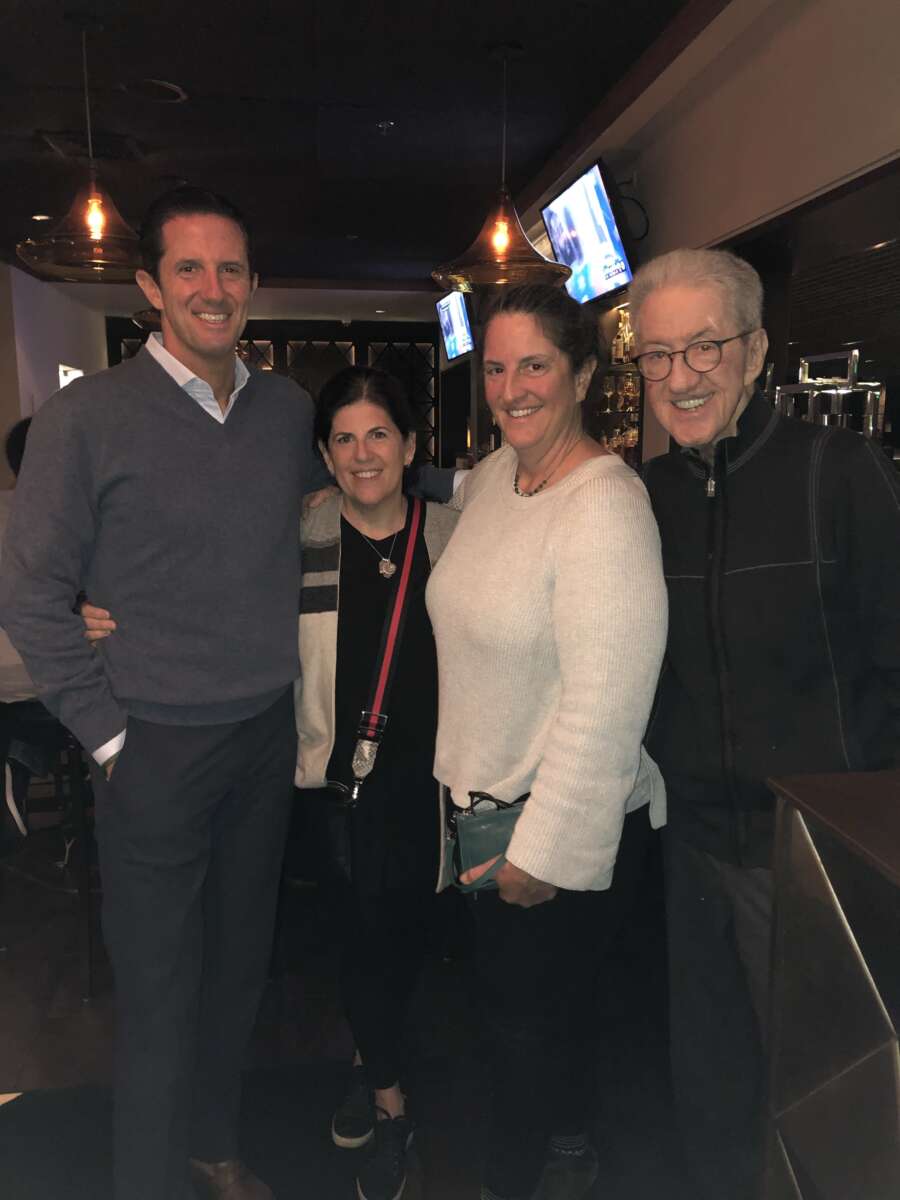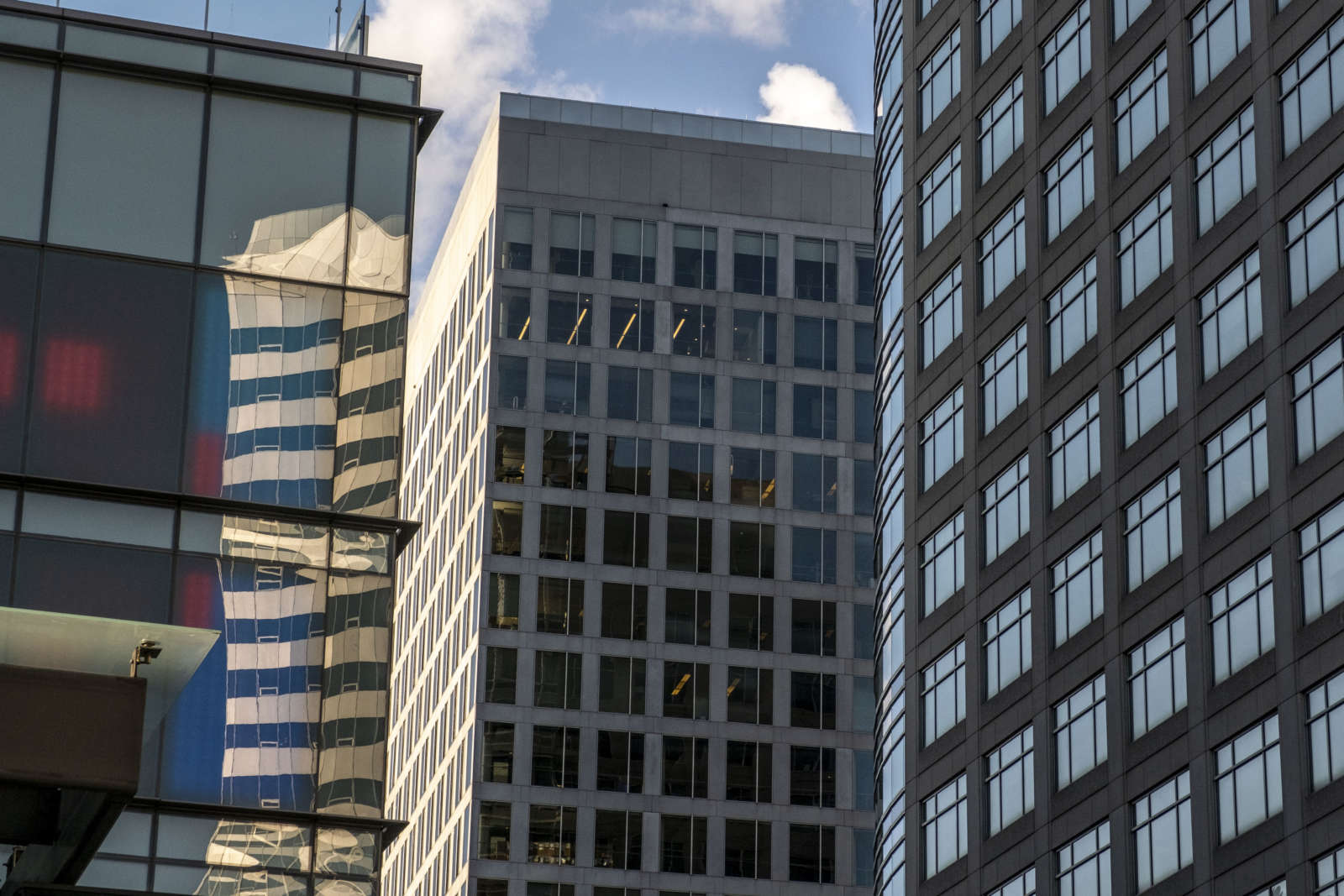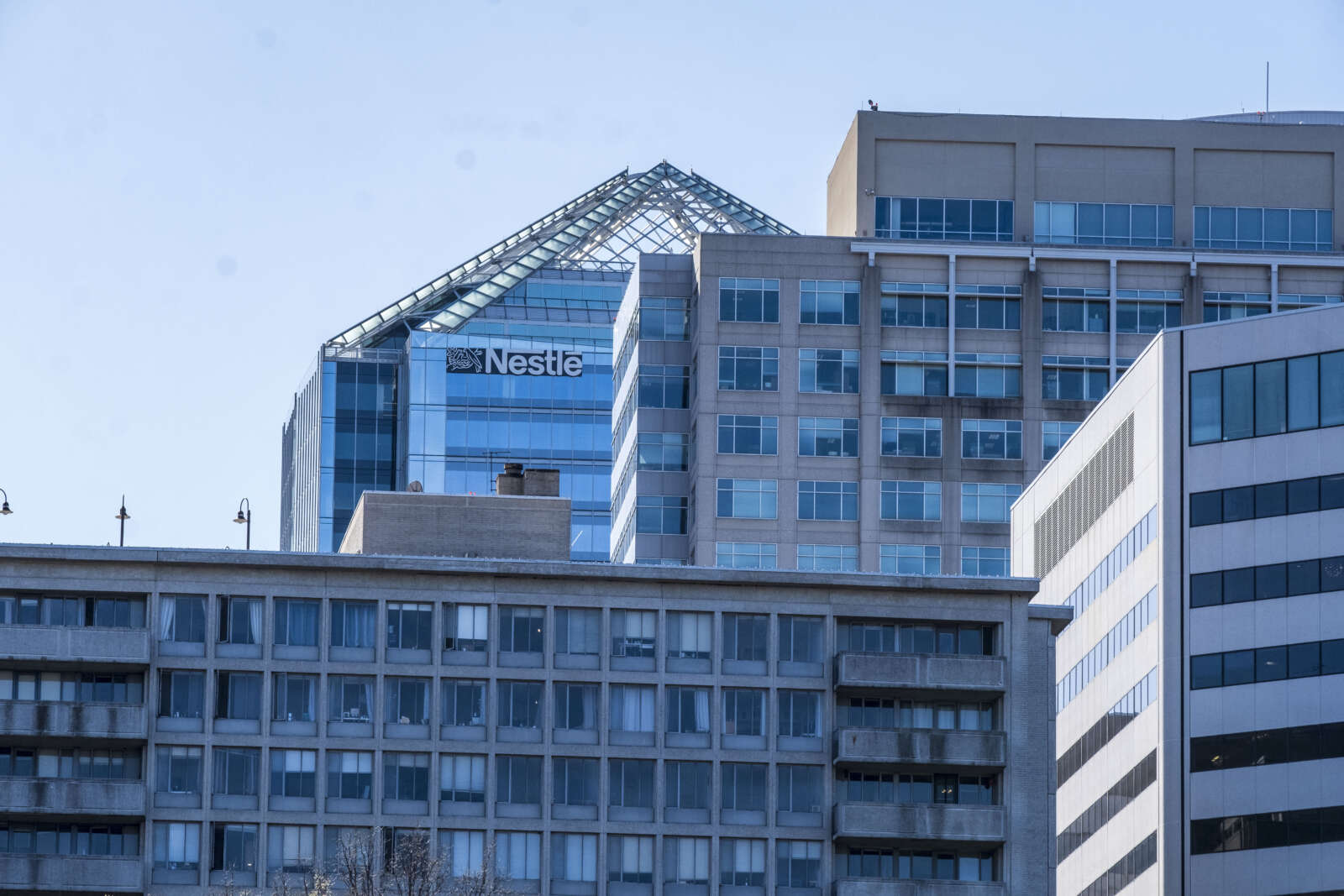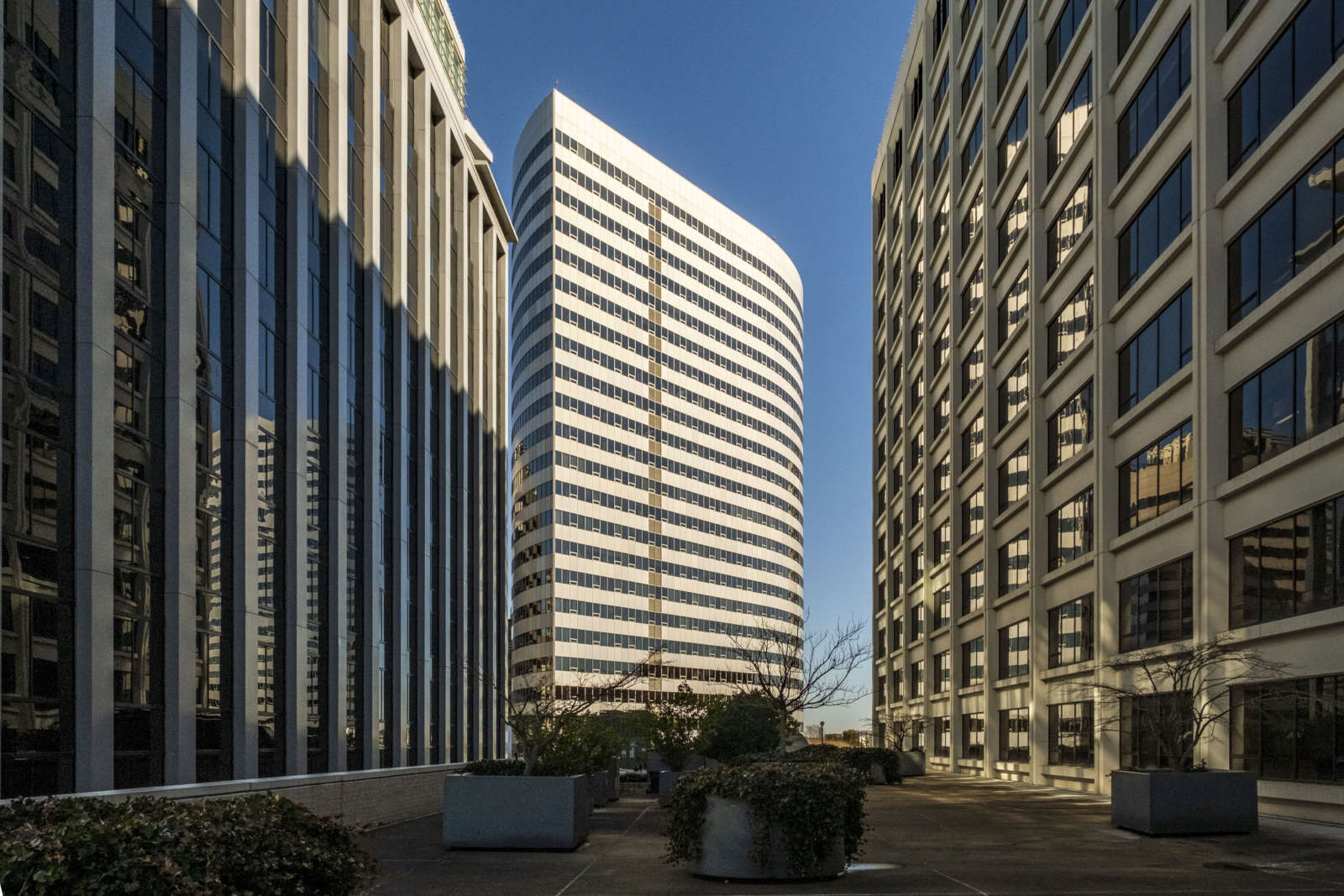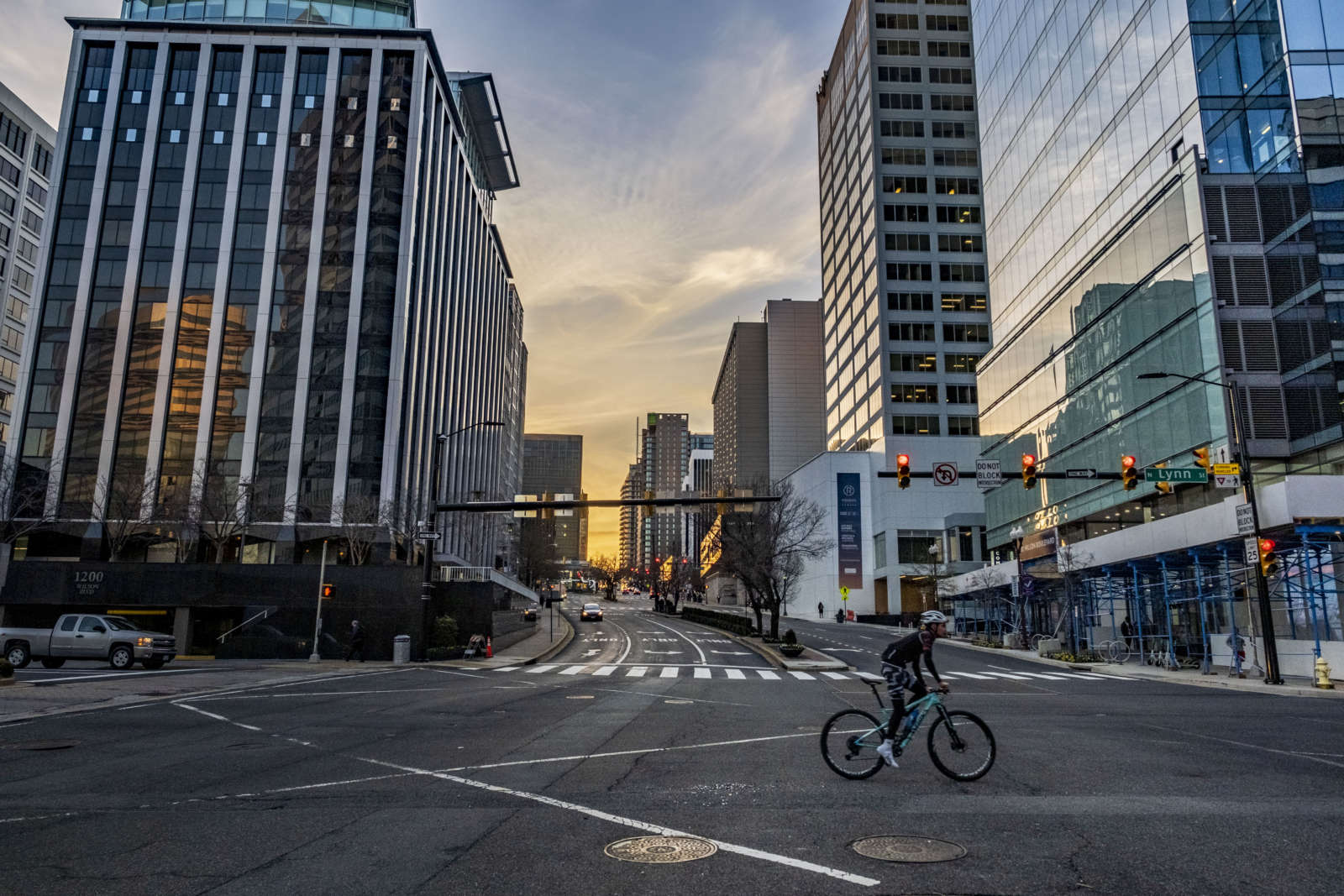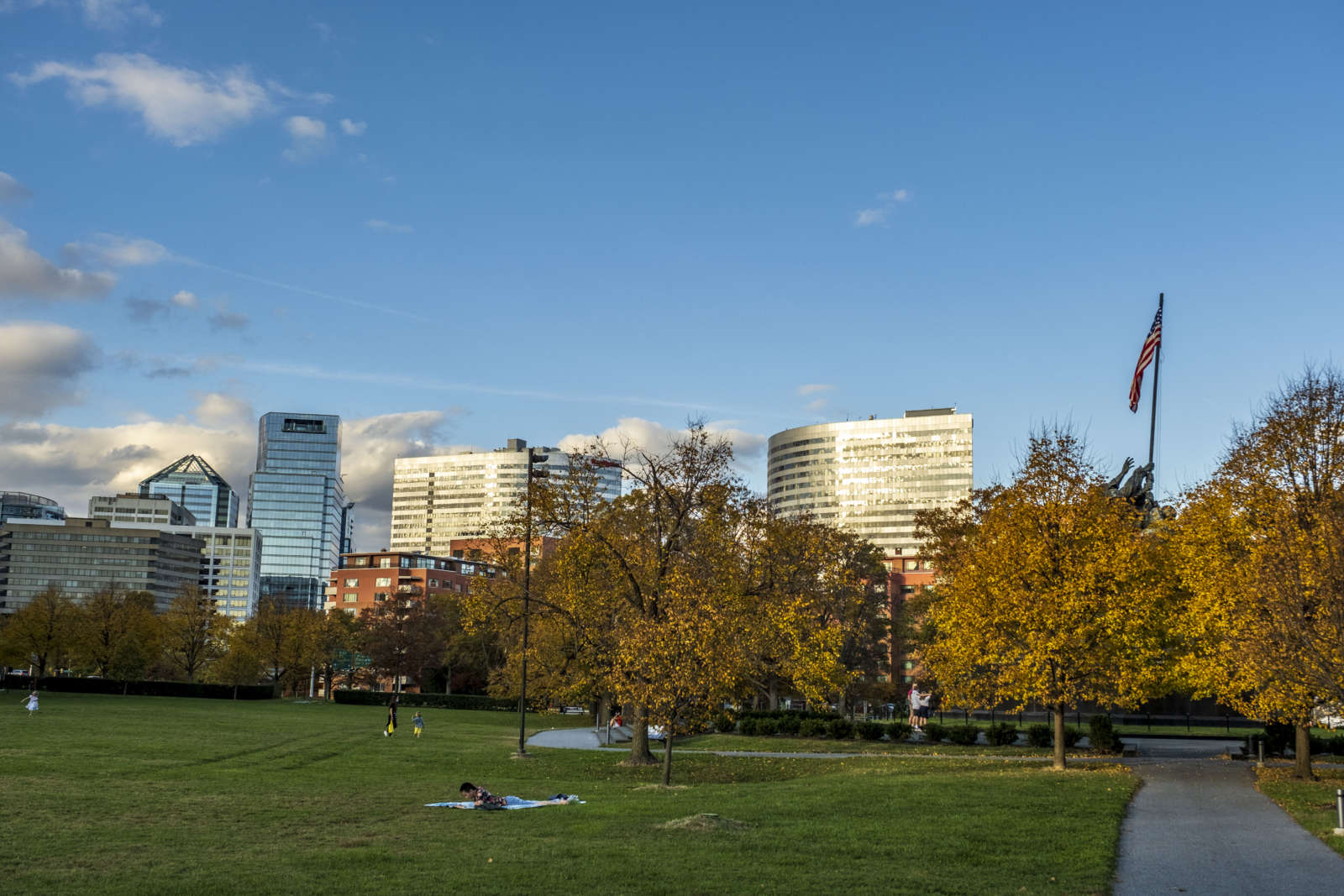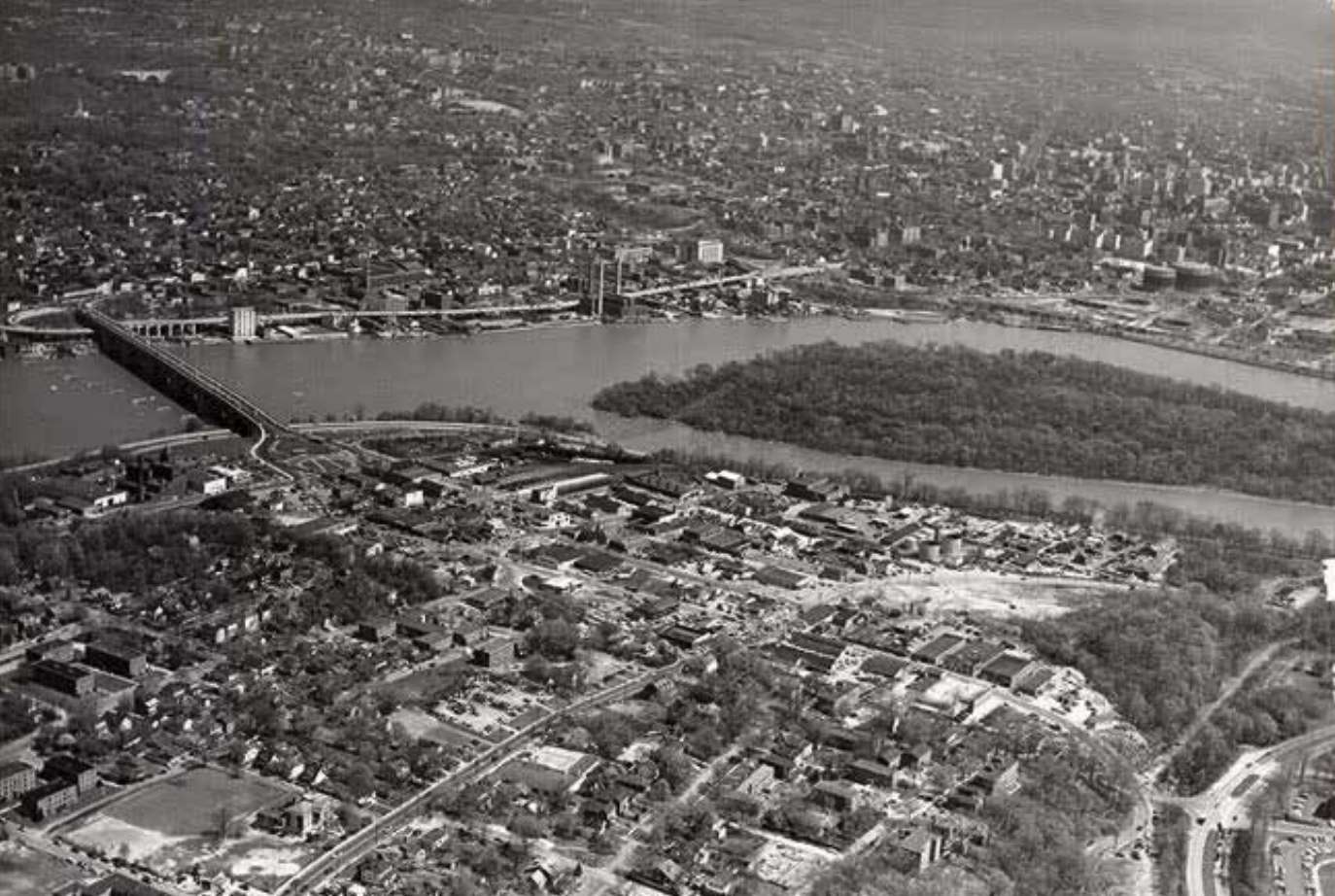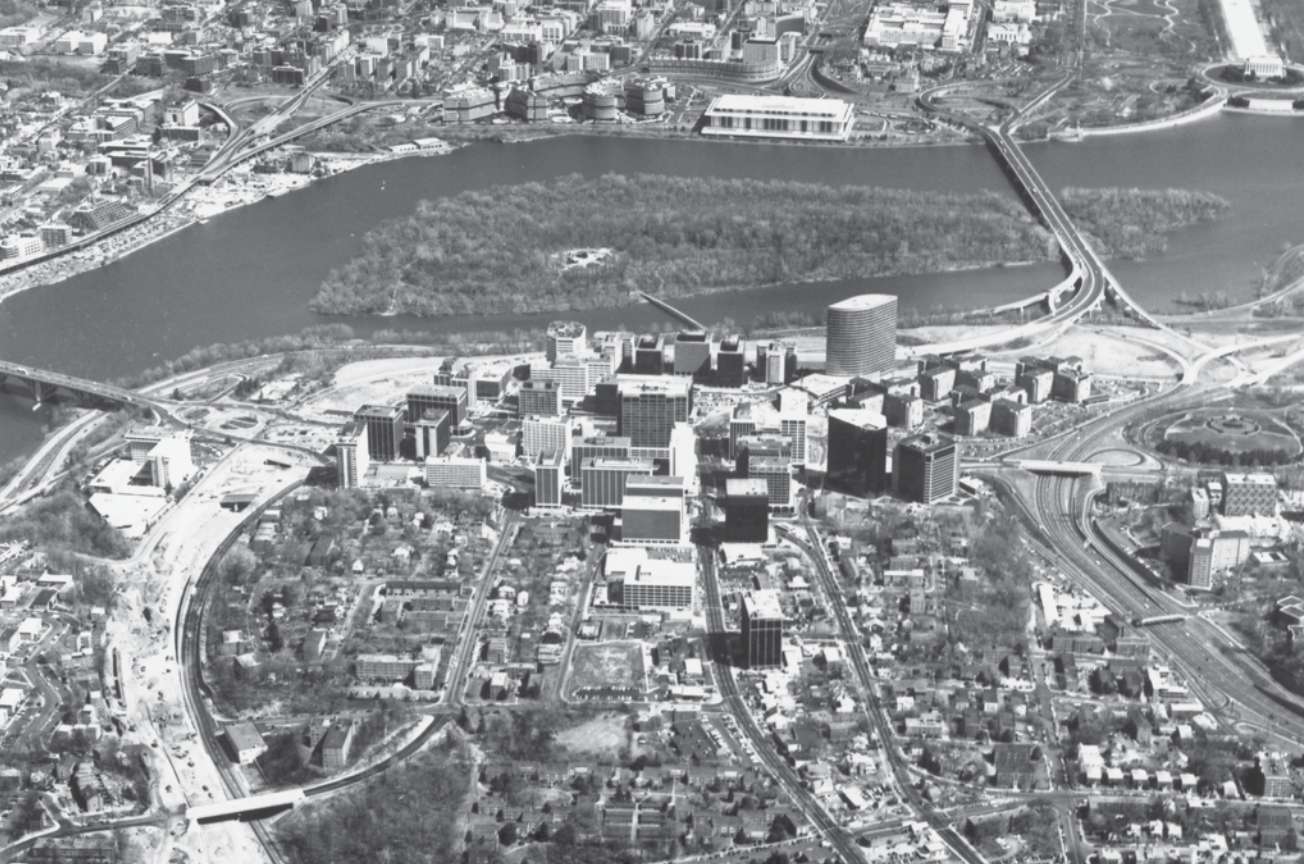The legacy of Stanley Westreich, the developer who built modern Rosslyn from the ground up, will always cast a large shadow in the neighborhood he helped establish, his son tells ARLnow.
Westreich died at the age of 84 last month at his home in San Diego. For decades, however, he lived in the D.C. area and had an outsized influence on the growth of Rosslyn.
His son, Anthony Westreich, remembers his father for being more than just a well-known developer.
“I think the adjectives that best describe my father are fair, honest, transparent, tough and kind,” Westreich told ARLnow in an email interview. “Everyone, whether it was contractors, brokers or lawyers, wanted to transact with my father. They always knew what they were getting from him.”
Beginning in the 1960s, his company Westfield Realty developed ten buildings in Rosslyn. Perhaps none were more iconic than the former USA Today/Gannett buildings at 1000 and 1100 Wilson Blvd, also known as the Rosslyn Twin Towers. When built in 1981, they were the tallest buildings in the D.C. metro area. Current occupants include WJLA-TV and Politico.
Part of what Westreich’s big bet on Rosslyn work was seeing an opportunity to the leverage its proximity to the District and its relative underdevelopment.
“He saw an opportunity to convert [an] excessive and unused parking structure into office space for government tenants,” Anthony writes. “He knew that unlike many of the great cities of the world, Washington, D.C. did not have development on both sides of its river.”
A native New Yorker, Westreich served in the Coast Guard and graduated from New York University law school. He moved to Rosslyn in 1959, said Anthony, with his family owning an interest in Rosslyn’s only federal housing project.
“In 1959, the only development in Rosslyn was that FHA project,” wrote Anthony. “Unfortunately, that investment was losing money as the project was ill-conceived.”
Westreich bought a big chunk of land and began to build office buildings, turning Rosslyn into a thriving commuter community.
“That vision [was] an immediate financial success for our family and provided my father with a long-term vision for Rosslyn,” wrote Anthony.
Those early but pivotal developments include 1400 Key Blvd — the parking garage of which was where Mark “Deep Throat” Felt met up with Washington Post reporter Bob Woodward to expose the Watergate scandal — as well as 1501 Wilson Blvd, 1515 Wilson Blvd, and 1815 N. Fort Myer Drive.
In 2005, Westreich sold his 2.5 million square foot Rosslyn portfolio to Beacon Capital Partners for nearly $1 billion. A year earlier, Anthony followed in his father’s footsteps when he established New York-based Monday Properties, which built a property portfolio that made it Rosslyn’s preeminent property owner.
The building on N. Fort Myer Drive was torn down more than a decade ago and the site is now home to 1812 N. Moore Street, Nestlé’s U.S. headquarters.
“Interestingly 1812 sits on the exact same site as the first building my father developed in 1961,” wrote Anthony, who himself made a big bet on Rosslyn by building 1812 N. Moore Street — then the tallest office building in the area — “on spec” without any signed tenants.
After years of vacancy, the bet finally paid off in 2017 with Nestlé’s announcement.
Only two years after the buildings left the family, Monday Properties and Anthony Westreich bought back the properties for $1.23 billion in 2007. At the time, those 10 buildings represented about 30% of Rosslyn’s office market. The company still owns the properties nearly a decade-and-a-half later, cementing the ongoing presence of the Westreich family shaping the Rosslyn skyline.
Westreich picked up bits of commercial real estate wisdom from his father.
The elder Westreich was a “correct mixture of pragmatic and creative,” his son said. No matter how innovative or unique the buildings might be, Westreich knew they had to sell.
“I recall him saying that many developers design a beautiful building and then, based on the cost of the building, would have to figure out how much they’d have to lease it for,” wrote Westreich. “My father approached this completely opposite — he would figure out what the market would pay and then he would build the building within those cost constraints.”
Westreich cites the Arlington County Board’s 1996 adoption of the “C-O Rosslyn” zoning classification for buildings as another huge step in the neighborhood’s development and one completely in line with his father’s vision. This classification allowed developers additional density and height in exchange for community amenities.
“[That] changed the landscape of Rosslyn in a very positive way,” Westreich wrote. “Rosslyn went from a 9-5 office-centric environment (mostly government tenants) to a 24-hour, truly urban environment with world-class residential, retail and multi-national office tenants.”
Westreich envisions Rosslyn continuing down the path that his father envisioned many years ago, becoming a “true 24/7 live/work environment.”
Despite the necessary move to remote work during the pandemic, Westreich believes that employees will be returning to the office soon since, he said, a company can’t flourish without in-person collaboration.
Rosslyn will continue to grow and the Westreich name will always be part of its history, he added.
“I feel proud to be a part of the legacy that my father created over 60 years ago,” wrote Westreich. “He was extremely proud of what Rosslyn has become and where it is going.”


